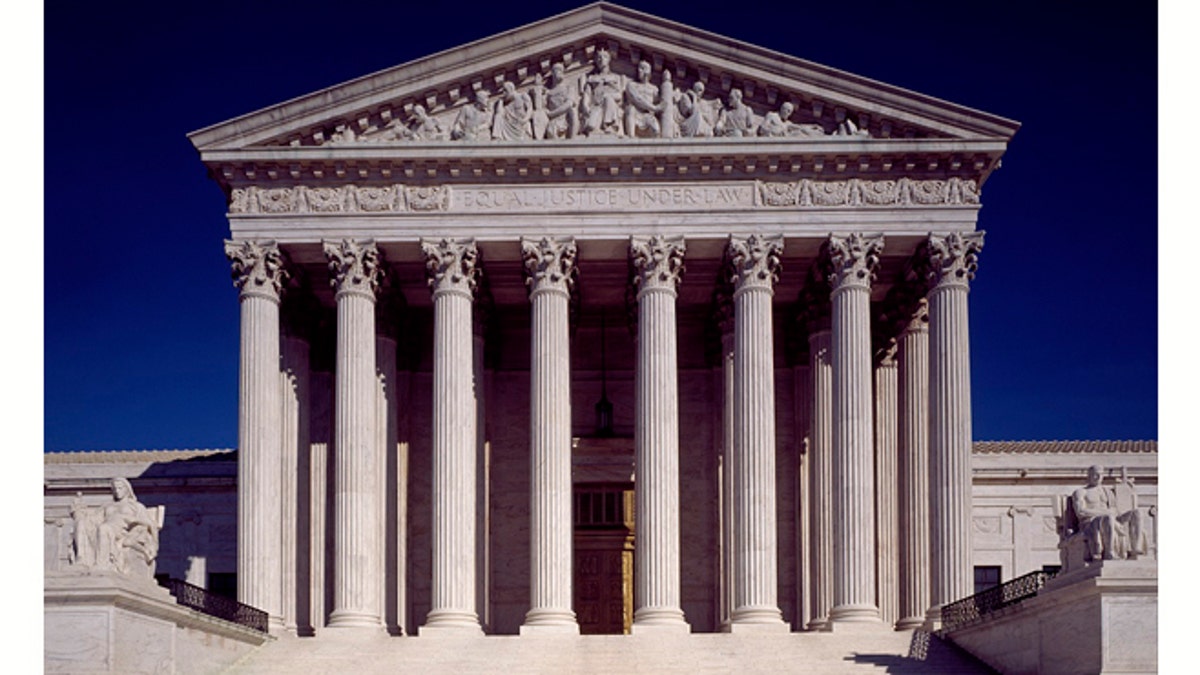
The United States Supreme Court. (Library of Congress)
The Supreme Court unwisely declined to review Drake v. Jerejian, last week, a case that challenged New Jersey’s discretionary system of concealed-carry permitting.
By denying review, the Court failed to resolve a nationwide split about the meaning of the Second Amendment.
Eventually, the Court will have to face the issue and decide if it was serious when it held that the Second Amendment protects an individual’s right to keep and bear arms.
[pullquote]
In 2008, in the landmark case of D.C. v. Heller, the Supreme Court held that the Second Amendment protects the individual right to keep and bear arms.
Later, in 2010’s McDonald v. Chicago, the Court held that the Second Amendment protects citizens from not just federal prohibitions, as Heller said, but also from state and municipal prohibitions.
Since that time, the Court has not heard another Second Amendment case. Both Heller and McDonald made it clear that the government cannot ban or effectively ban guns, but lower courts are still struggling to define what restrictions are allowed under those rulings. The Supreme Court needs to clear up the uncertainty.
Gun controllers in cities and states across the country are taking advantage of that uncertainty to test the limits of gun control. After McDonald struck down Chicago’s de facto gun ban, the city created a restrictive permit system requiring one hour of range training. But the city also banned gun ranges. The Seventh Circuit struck down the ban on ranges.
More recently, a judge struck down Chicago’s ban on virtually all sales and transfers within the city because the Second Amendment right “must also include the right to acquire a firearm.”
The current situation is similar to the politics of abortion. Roe ruled that a complete prohibition on abortion is unconstitutional while allowing certain restrictions, and Heller ruled similarly on the Second Amendment. After Roe, Prolifer supporters immediately began enacting barriers to abortion, seeing what would stick. Subsequent guidance from the Court, however, cleared up the constitutional rules surrounding abortion.
The Second Amendment is sorely in need of similar guidance from the Court. Drake gave them that opportunity.
In 2012, in another case from Illinois, the Seventh Circuit struck down the state’s complete prohibition on carrying firearms. The Second Amendment, after all, protects the right to keep and bear arms. A total ban is not OK, said the court, but what restrictions are allowed is still an open question.
All states now allow some form of concealed carry, but many states, particularly those in the Northeast, only do so through a system of discretionary permitting that converts the right to keep and bear arms into a privilege granted by government bureaucrats.
In those “may issue” states, citizens not only have to demonstrate that they meet all the objective criteria, they also have to convince the local sheriff or another bureaucrat that they really “need” a concealed carry permit. In Drake, the Third Circuit upheld New Jersey’s discretionary permitting system that is so restrictive that it only grants 0.02 percent of licenses.
Imagine you wanted to throw a May Day rally to commemorate International Workers’ Day. When filling out the permit forms concerning restrictions on noise, clean-up, and time, you see that you’re also required to demonstrate a “justifiable need” for your rally. In other words, government bureaucrats get to decide, in their discretion, if your May Day rally is important enough to grant the permit.
Now imagine they only grant 0.02 percent of those “rally permits.” This would be a clear First Amendment violation. In fact, allowing any bureaucratic discretion would violate the First Amendment.
Generally, where constitutional rights are concerned, giving bureaucrats too much discretion is a bad idea. We shouldn’t allow “cruel and unusual punishments” when some sheriff thinks it is really good idea. And we definitely shouldn’t let county administrators decide whether you have enough “free exercise of religion.”
But that is essentially what the Supreme Court is allowing in Drake by declining to review.
Consequently, more judges and lawmakers across the country will disregard the Court’s decision in Heller simply because they don’t like guns.
Until the Court steps in with guidance, the Second Amendment will continue to be treated by many judges as a privilege rather than a right.
